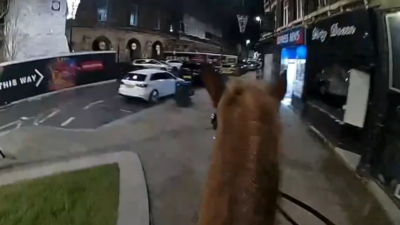A Persistent Pattern
Blackburn Life has regularly reported on fuel price disparities across East Lancashire, and our latest investigation — based on real-time data from PetrolPrices.com — suggests that little has changed.
Planning a night out? See the live What’s On in Blackburn calendar.
We compared petrol and diesel prices from a 5-mile radius around key Lancashire towns. The conclusion? Blackburn is once again at the top of the price table, with the cheapest petrol starting at 128.7p/litre and diesel at 133.9p/litre.
Regional Comparison – Petrol and Diesel Prices (as of 3 June 2025):
| Town | Petrol (p/l) | Diesel (p/l) |
|---|---|---|
| Haslingden | 124.9 | 129.9 |
| Bury | 124.9 | 131.7 |
| Bolton | 124.7 | 130.7 |
| Manchester | 124.7 | 130.9 |
| Preston | 127.7 | 134.7 |
| Blackpool | 128.7 | 134.7 |
| Blackburn | 128.7 | 133.9 |
On paper, Blackburn may not seem dramatically higher than places like Preston or Blackpool. But it’s the lack of consistently low-cost fuel stations that puts local drivers at a disadvantage. In Manchester, Bolton and Bury, for example, drivers benefit from a higher density of stations — including discount chains — competing on price.
Why Is Blackburn Always Dearer?
Fuel companies often cite vague “local market factors” when justifying higher pump prices. These can include:
- Lack of local competition
Fewer budget-friendly outlets mean less pressure on retailers to keep prices low. - Rental and business rates
Operators sometimes argue that urban locations face higher overheads — but this fails to explain why even towns like Manchester manage lower prices. - “What the market will bear” pricing
This is the most contentious explanation. Simply put: if people keep paying, prices stay high.
Are We Being Ripped Off?
Put simply, yes — in relative terms, Blackburn drivers are paying more than they should. And it’s not the first time this has been highlighted.
When other towns just a few miles away can consistently offer fuel 4–5p cheaper per litre, it becomes harder to justify the pricing in Blackburn as anything other than opportunistic.
The idea that Blackburn is a “captive market” — where drivers don’t shop around or can’t easily travel further afield — gives retailers the green light to charge more.
As one motorist put it bluntly on social media:
“If they can get away with ripping off Blackburn drivers, they will.”
What Can Drivers Do?
While we can’t control global oil prices or corporate profit margins, there are things you can do to challenge unfair pricing locally:
- Use comparison tools
Websites like PetrolPrices.com and apps like Waze or Google Maps help you find the cheapest fuel near you in seconds. - Support the cheapest stations
Rewarding lower-priced stations puts pressure on others to follow suit. - Call out bad practice
Share your experiences online, tag companies on social media, and email them directly. Public pressure works. - Drive smarter
Combine journeys, car share when possible, and drive economically to reduce your fuel dependence.
A Bigger Conversation About Fairness
There’s no denying that the cost of living is biting — and fuel is one of the most visible price indicators people notice every day. It affects everything: commuting, deliveries, school runs, and even the price of groceries.
For a town like Blackburn — already facing questions about fair access to services, business closures, and regeneration lagging behind neighbouring towns — fuel pricing adds insult to injury.
It feels like a hidden tax on the people who can least afford it.
What Do You Think?
- Have you been driving to neighbouring towns just to find cheaper petrol?
- Do you think fuel retailers are taking advantage of Blackburn motorists?
- Should councils or MPs step in to investigate regional price discrepancies?
We want to hear from you.
Join the conversation on our Facebook page, comment below, or tag @BlackburnLife with your thoughts.
Together, let’s make sure local drivers don’t keep paying the price — just because we’re used to it.







